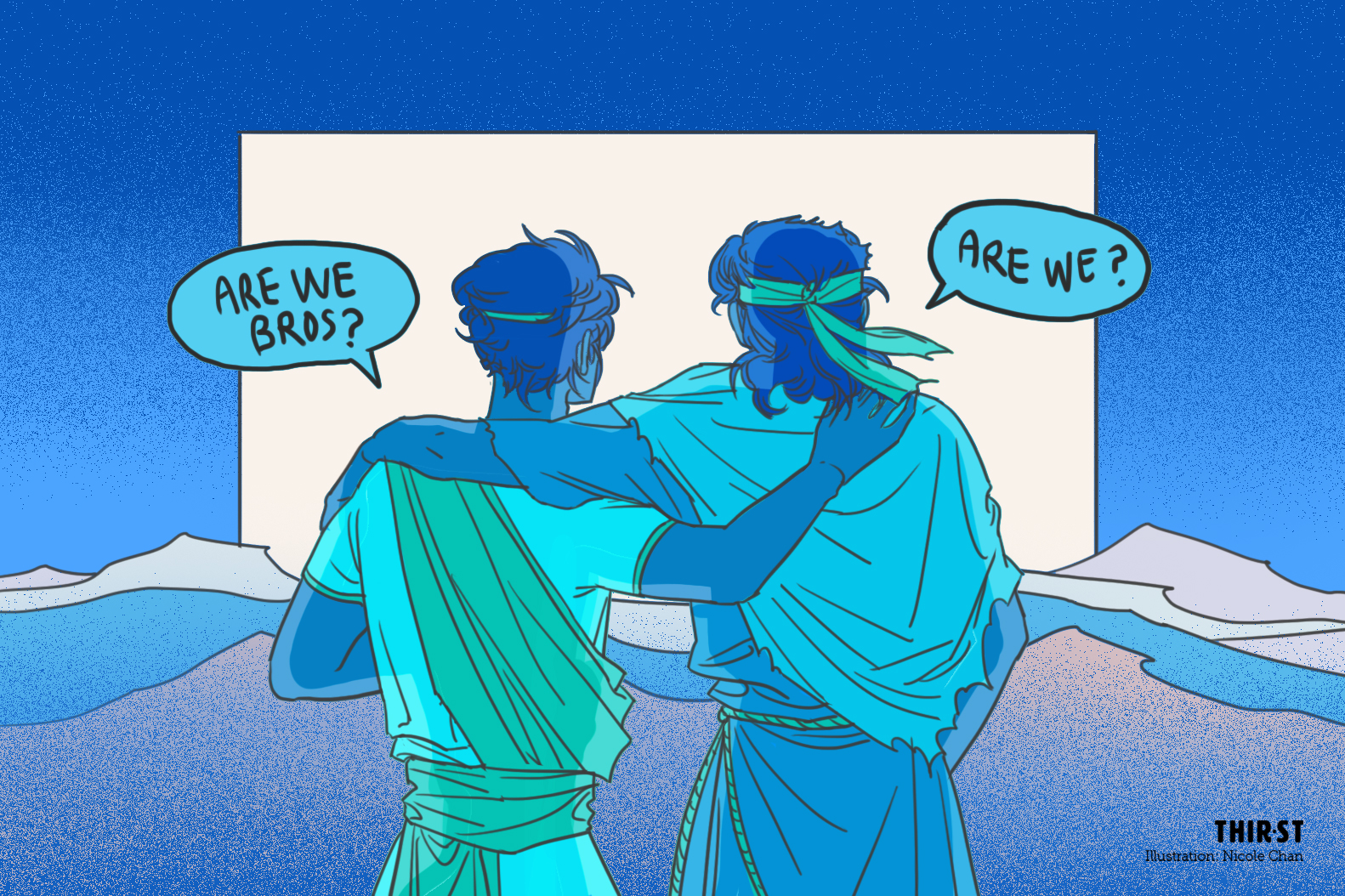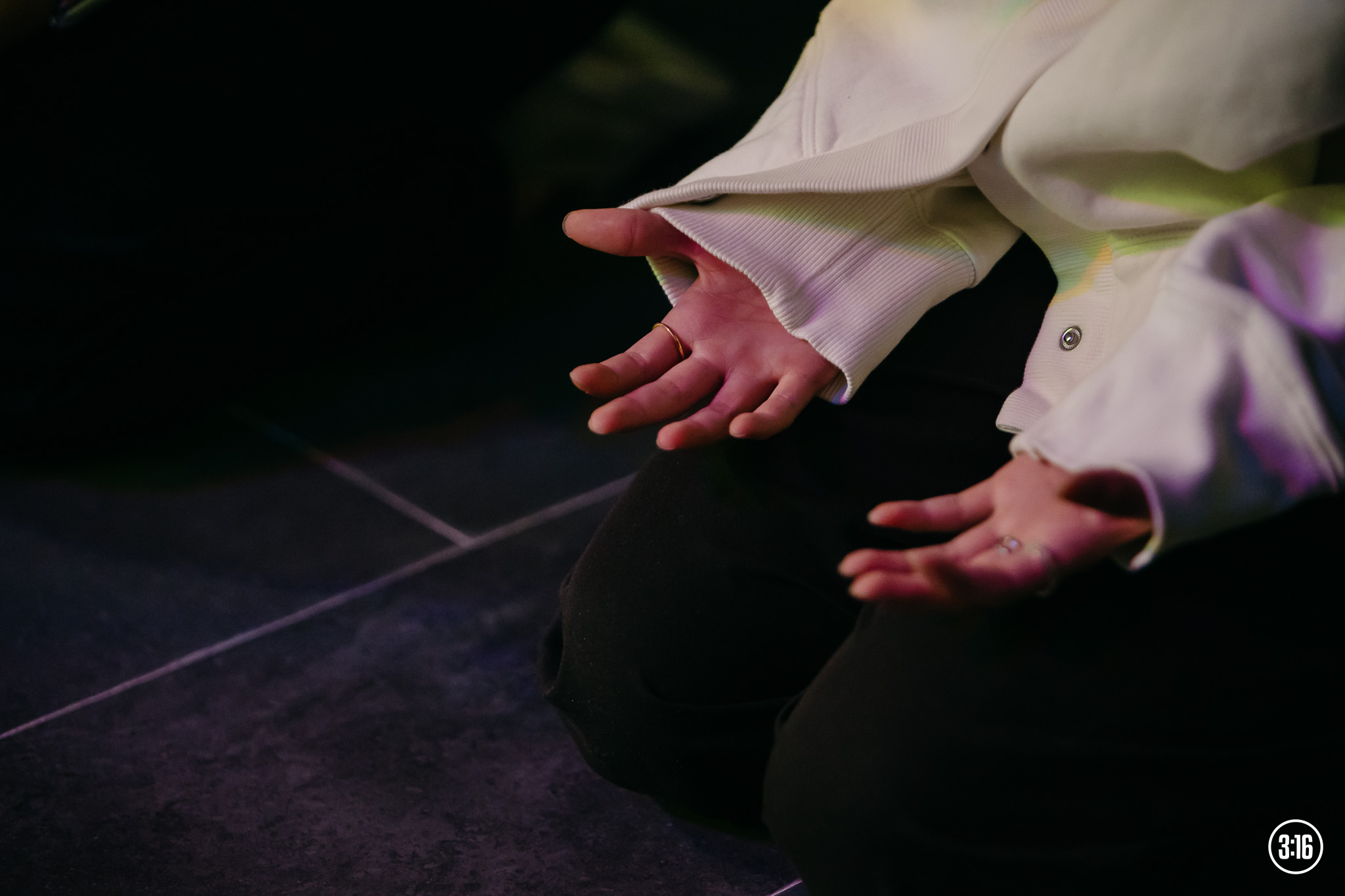Have you ever wondered about the relationship between David and Jonathan in the Bible?
Much has been read into the seemingly suggestive friendship between these two Bible characters by some, which is why Pastor Ian Toh of 3:16 Church sought to demystify this relationship by unpacking the scriptures surrounding it.
Speaking on May 1 at Momentum Series 2021, a virtual conference for youths aged 35 and under, organised by LoveSingapore, Pastor Ian began by highlighting two important things to keep in mind while reading Scripture.
- Plain text
- Context
Plain text refers to focusing on what the text says. It is not reading into what the text did not say, he explained. As such, we interpret the Bible by first respecting the plain text.
Pastor Ian continued: “Above and beyond the plain text, we need to respect the context.
“That means when reading the Bible, we pay attention to the whole passage and not just the isolated verses.”
Having laid the foundation for scriptural interpretation and discussion, Pastor Ian dove into the verses that seem to trouble some.
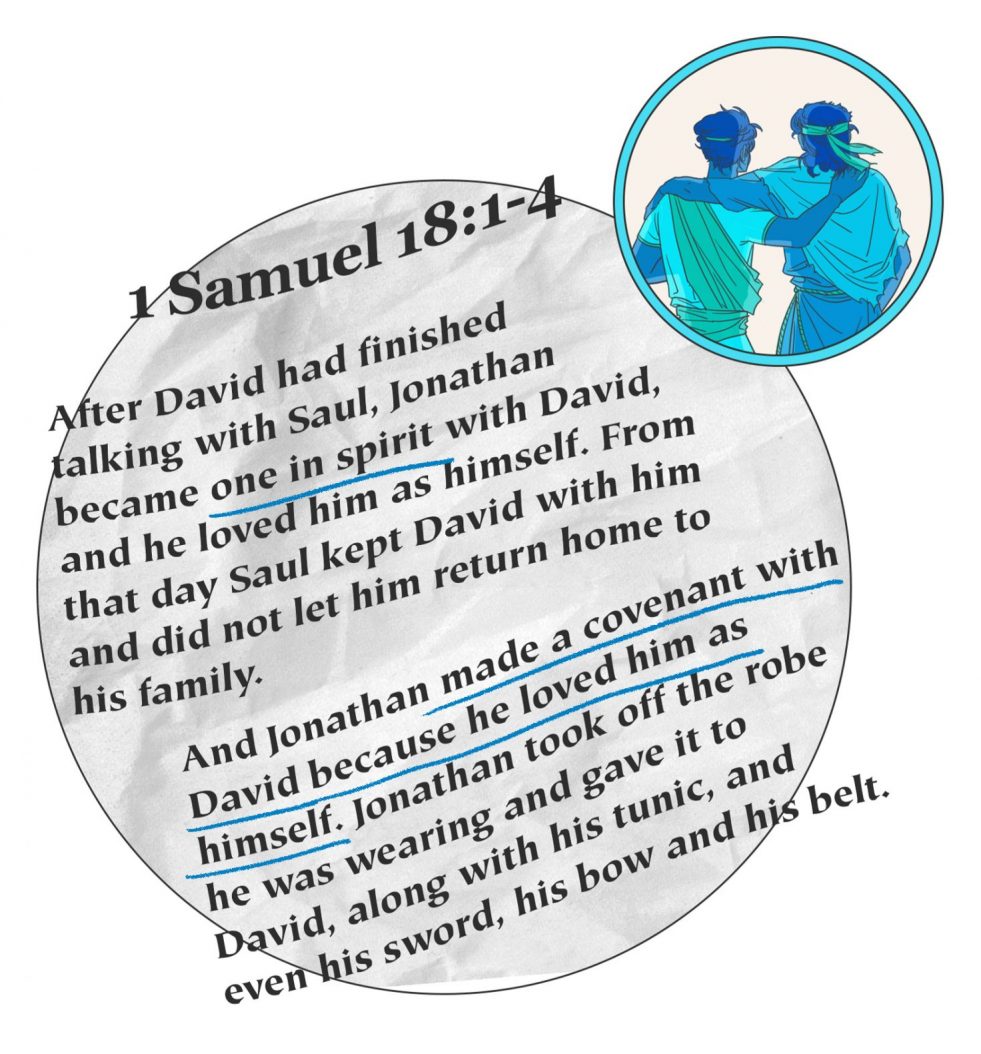
Reading from 1 Samuel 18:1-4, Pastor Ian began by looking at some common misapplications of the verses.
“There! This is the confirmation,” he animatedly assumed, “The Bible says that their souls are ‘knit’ together.
“They loved each other and even made a covenant — it must be a marriage covenant!”
Focus on what the text says… pay attention to the whole passage and not just the isolated verses.
Pastor Ian then pointed out other wrong interpretations readers might be quick to jump to, like how David and Jonathan “kissed” in 1 Samuel 20:41-42.
There was also the oft-quoted example of David describing Jonathan’s love as surpassing that of a woman’s love (2 Samuel 1:26).
Judging from a quick reading of these few verses, it would appear to the undiscerning eye that these two characters were “confirm plus chop” in a same-sex relationship.
But Pastor Ian disagreed.
“A lot of people are taken in by the surface reading of these verses,” he explained.
Pastor Ian urged readers to read the Bible clearly by looking into the plain text and context. To that end, he offered a few guiding questions for the verses previously examined.
- Did the plain text say that King David was homosexual?
- Did the plain text say that Jonathan was homosexual?
- Did the plain text say they made a marriage covenant?
- Did the plain text say that the kiss was sexual or romantic in nature?
When we consider the plain text and context, the answer to every question posed above is clearly no.
So, what then shall we make of those verses?
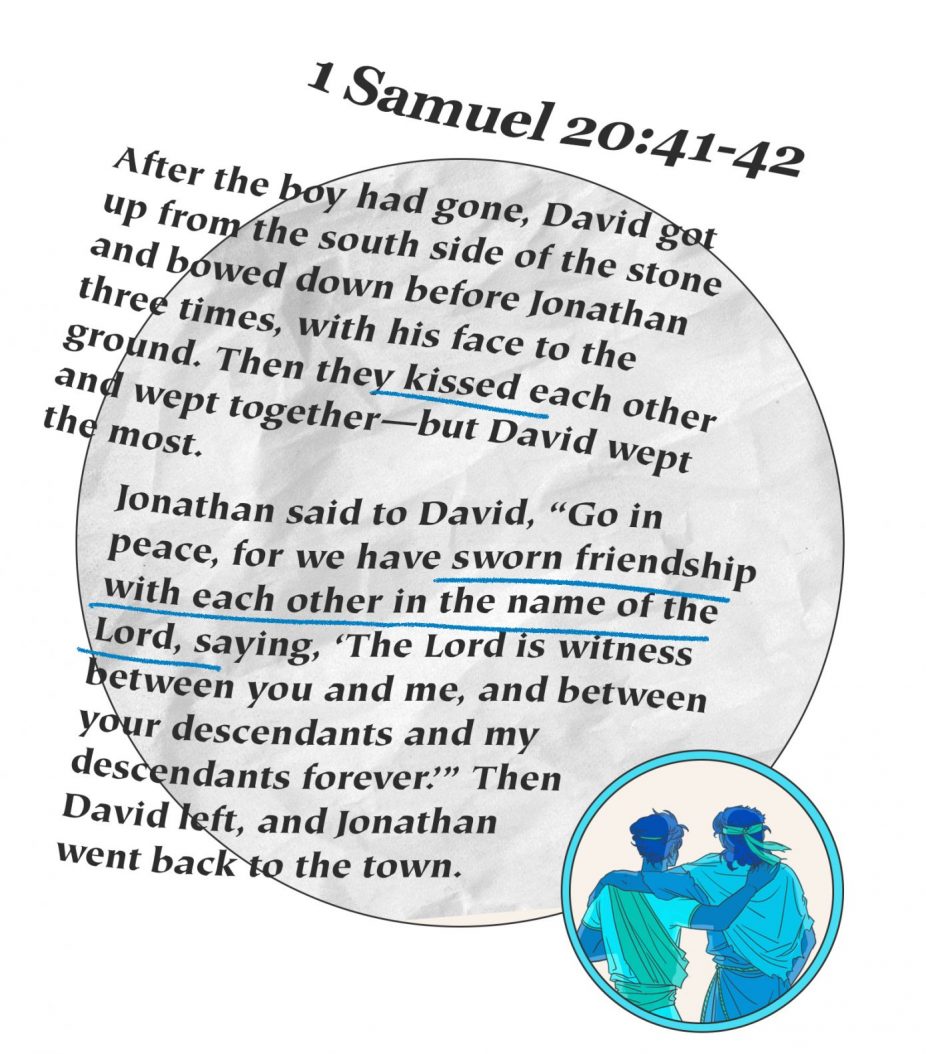
“It’s quite interesting that the Bible said that David and Jonathan’s souls were knit together,” explained Pastor Ian.
“In the New Testament, the words ‘knit together’ were also said of a group of Christians in Colossians 2:2.”
In the context of Colossians 2:2, Paul was exhorting the community there to unite in love — to be one. Unity was what Paul’s letter to the church in Colossae was about.
For Pastor Ian, one detail is especially telling: in the same letter, Paul also addressed how believers should act regardless of their different statuses as husbands, wives, children, masters or slaves.
“It is not sexual just because the word ‘knit’ was used,” said Pastor Ian.
Similarly, elsewhere in the Bible, one can find verses where people are encouraged to kiss each other as a form of greeting (1 Thessalonians 5:26).
“There is nothing that suggests that the kiss that David and Jonathan had was a sexual, romantic kiss,” Pastor Ian continued. “It was actually the culture in ancient Middle Eastern days to kiss each other on the cheek as a form of greeting.”
On that point, it’s also worth noting that David was bidding Jonathan goodbye when he kissed him.
What about the covenant then? Once again, reading the passage in context brings clarity.
“David was anointed to be king of Israel but Jonathan was next in line for the throne,” Pastor Ian revealed. “So, Jonathan was saying, ‘David, don’t worry. Between our descendants, there will be peace.’”
“It is not a marriage covenant like what some say.”
Lastly, what did David mean when he said that Jonathan’s love for him surpassed the love of women (2 Samuel 1:26)?
“There is no better way than to let David speak for himself,” Pastor Ian suggested.
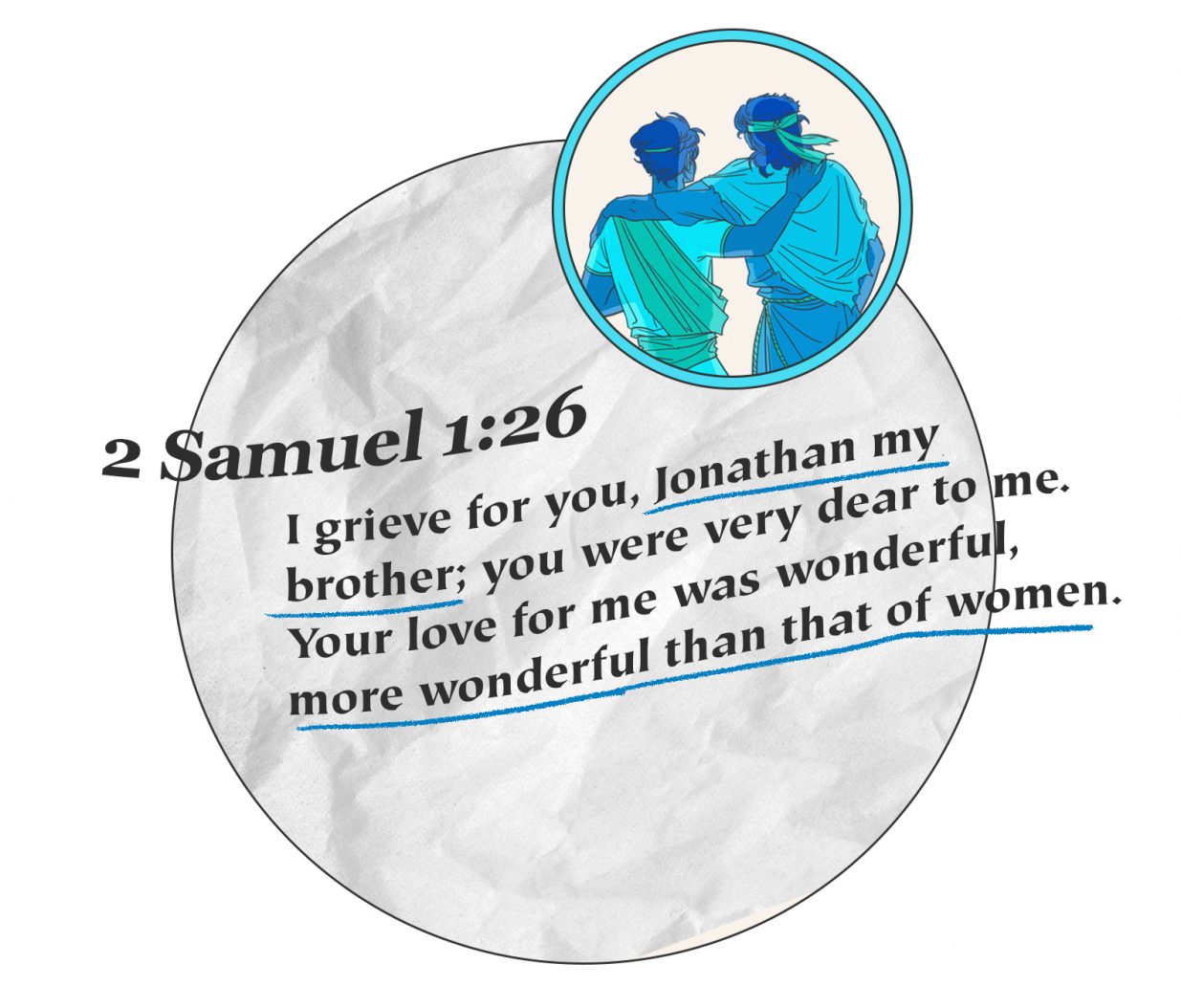
Reading from the same verse, he noted: “What did David say? David said, ‘I am distressed for you, my brother’.”
Pastor Ian emphasised that David did not say “my lover” or “my husband”.
“There is a love between brothers that can be even more wonderful than a woman’s,” elaborated Pastor Ian.
“That’s why Jesus Christ said this: ‘There is no greater love than to lay down one’s life for one’s friends’” (John 15:13, ).

As he wrapped up his sharing, Pastor Ian encouraged the audience to be a generation of Daniels – to be believers who would stand firm in truth against the changing times.
“God is raising for Himself a holy generation amongst the young,” he declared, handing over the time to a young student representative to lead a prayer. “The destiny of this country is resting on the generation that is coming.
“I pray that the biblical worldview will be the compass of our lives and that we will be protected by the Lord Jesus!”
- Think of a few of your favourite verses.
- Read these again with plain text and context in mind.
- Does it change the verses’ meaning to you? Can you still apply them to your life?
- Continue to keep tools like these in mind as you read Scripture discerningly!


